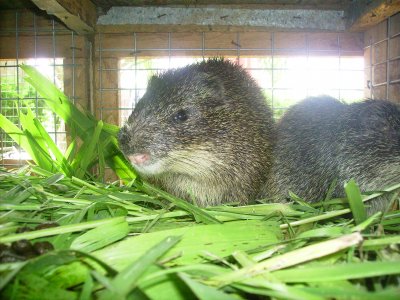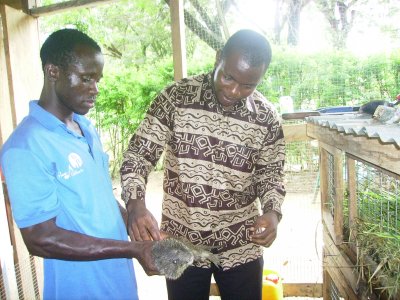Progressive Women Foundation, Ghana
Community Goat Project
The Animal Research Institute in Accra, in association with the Ghana Society of Animal Production and the Canadian Society of Animal Production (GSAP-CSAS), received funding for a revolving goat project as economic support to rural women involved in the sheanut industry in northern Ghana. The project will provide breeding herds of goats to women groups in 10 communities in northern Ghana, heping to support the livelihoods of 340 women in the first year.
Community Grasscutter Project


This project seeks to empower local communities with skills and resources to domesticate grasscutter rats (Thryonomys swinderianus) and increase the production of their meat for local markets. This has dual significance in that it serves both as a source of income for local people but also as a conservation strategy for wild grasscutter populations.
Grasscutters are the most preferred bushmeat species in Ghana and the most important throughout West Africa in terms of volume of trade and preference. This project promotes the production of Grasscutters by rural communities through husbandry training by staff from the Kwame Nkrumah University of Science and Technology and by providing them with the initial stock of animals to begin their own farming enterprises.
Each beneficiary household will return an agreed number of offspring to the community to enable others to benefit. The project is expected to provide employment and supplementary income, reduce pressure on wild Grasscutter populations and directly reduce the incidence of wildfires - the most common mode of capture for wild animals.

